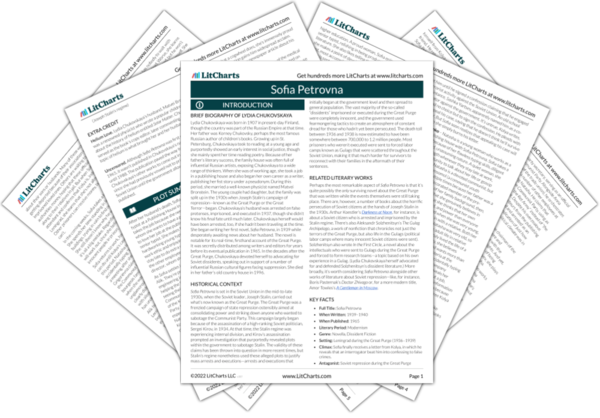It’s quite clear at this point in the novel that the political and social climate surrounding Sofia is getting out of hand, as everyone around her succumbs to a hypervigilant kind of patriotism that leads to hysteria and panic. Natasha’s firing demonstrates how easy it is to attract suspicion, since she was let go for a small typo. And yet, the
real reason she’s fired is that she originally comes from a bourgeois family. And though it’s obvious that she has no lingering sympathies for her bourgeois roots, she gets fired anyway—a good illustration of the unreasonable paranoia at foot at the publishing house (and in society at large).
